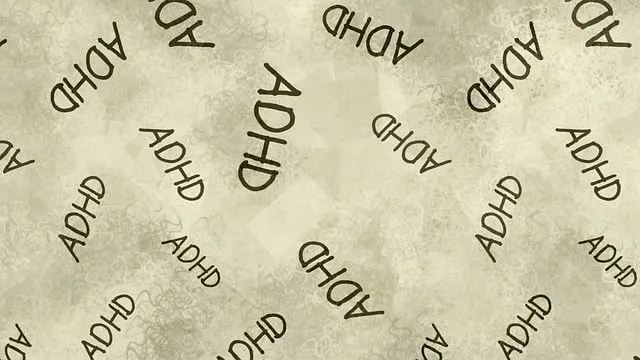Kaiser Permanente's community outreach in Denver transforms healthcare accessibility with tailored programs addressing mental health, cultural competency, and socio-economic needs. Their successful strategies include identifying target communities, employing Inner Strength Development, Mind Over Matter principles, conflict resolution, mindfulness meditation, and measuring impact through participant feedback and data collection. These holistic Kaiser Permanente training programs in Denver foster resilience, empower individuals, and build sustainable, harmonious communities.
Community outreach programs play a vital role in connecting healthcare organizations with diverse populations. This article explores the successful implementation of Kaiser Permanente’s training programs in Denver, highlighting their impact on local communities. We’ll guide you through understanding community needs, designing effective strategies, and implementing best practices. From identifying target audiences to measuring program outcomes, discover how these programs foster long-term engagement and improve healthcare accessibility.
- Understanding Community Outreach: The Role of Kaiser Permanente Training Programs in Denver
- Identifying Target Communities and Their Needs
- Designing Effective Outreach Strategies: A Step-by-Step Guide
- Implementing Training Programs: Best Practices for Success
- Measuring Impact and Evaluating Outcomes: Ensuring Long-Term Engagement
Understanding Community Outreach: The Role of Kaiser Permanente Training Programs in Denver

Community outreach programs play a pivotal role in bridging healthcare disparities and fostering inclusive access to services. In Denver, Kaiser Permanente training programs have emerged as game-changers, empowering local communities with knowledge and skills. These initiatives focus on various aspects, from mental health policy analysis and advocacy to depression prevention and effective communication strategies. By equipping individuals with the right tools, these programs ensure that community members can navigate healthcare systems more confidently and access essential services tailored to their unique needs.
Kaiser Permanente’s commitment to training reflects its understanding of Denver’s diverse landscape. Through interactive workshops and educational sessions, they address pressing local concerns, such as cultural competency in healthcare delivery and the impact of social determinants on mental well-being. This proactive approach not only enhances the quality of care but also builds resilient communities capable of promoting mental health and overall wellness.
Identifying Target Communities and Their Needs

Identifying target communities and their unique needs is a crucial step in designing effective Kaiser Permanente training programs in Denver. These communities often face specific challenges that require tailored interventions. For instance, urban neighborhoods with a high concentration of low-income families may benefit from programs focusing on healthcare accessibility and financial literacy. Conversely, suburban areas dealing with rising mental health issues among adolescents could require initiatives centered around Trauma Support Services and Conflict Resolution Techniques.
By understanding the socio-economic, cultural, and psychological landscape, training programs can be crafted to address pressing local needs. Incorporating Inner Strength Development strategies can empower community members to overcome barriers. For example, engaging at-risk youth in extracurricular activities that foster resilience and self-esteem can prevent them from turning towards detrimental behaviors. This targeted approach ensures that resources are utilized efficiently, leading to more meaningful and impactful outcomes.
Designing Effective Outreach Strategies: A Step-by-Step Guide

Designing effective outreach strategies is a key component of successful community programs, such as those offered by Kaiser Permanente training in Denver. The first step involves understanding the target audience and their unique needs. This requires thorough research to identify cultural nuances, socio-economic factors, and specific challenges within the community. By employing Mind Over Matter Principles, organizations can tailor their messages and approaches, fostering better engagement and trust.
Once the community’s landscape is understood, it’s time to create a comprehensive plan. This includes setting clear goals, defining measurable outcomes, and determining the most suitable channels for communication. Incorporating Self-Esteem Improvement techniques in outreach materials can enhance participant motivation and involvement. Additionally, Empathy Building Strategies are vital to creating meaningful connections, ensuring that programs resonate with individuals on a personal level.
Implementing Training Programs: Best Practices for Success

Implementing training programs is a vital step in fostering community engagement and empowerment. Organizations like Kaiser Permanente Denver recognize the importance of equipping individuals with valuable skills for personal growth and effective communication. One key practice is offering workshops on Inner Strength Development, enabling participants to build resilience and navigate challenges with enhanced coping mechanisms. These sessions can be tailored to diverse audiences, ensuring accessibility and relevance.
Additionally, incorporating Conflict Resolution Techniques and Mindfulness Meditation practices in community outreach programs has proven beneficial. By teaching individuals how to manage conflicts peacefully and promote mindfulness, these initiatives contribute to a more harmonious society. Such training fosters understanding, empathy, and effective communication, ultimately strengthening the bond within communities. This holistic approach ensures that participants gain practical tools for personal transformation while actively contributing to a positive social environment.
Measuring Impact and Evaluating Outcomes: Ensuring Long-Term Engagement

Measuring the impact of community outreach programs is crucial for their long-term success and sustainability. Organizations like Kaiser Permanente Denver have pioneered innovative training programs that go beyond immediate outcomes. By evaluating the effects on mental illness stigma reduction efforts, these programs aim to foster lasting change. Through regular assessments and participant feedback, they gauge the adoption of positive thinking strategies and overall community engagement.
This holistic approach ensures that the outreach initiatives are not just short-term interventions but contribute to building resilient communities. The data collected helps in refining program methodologies, making them more effective over time. By continuously assessing outcomes, Kaiser Permanente training programs Denver can adapt to evolving needs, ensuring their commitment to positive social transformation remains unwavering.
Kaiser Permanente’s training programs in Denver have proven to be powerful tools for community outreach, effectively addressing diverse local needs. By systematically identifying target communities and designing tailored strategies, these programs achieve significant impact. Implementing best practices ensures long-term engagement and measurable outcomes, fostering a healthier, more connected Denver. The success of these initiatives highlights the value of comprehensive training in community outreach, setting a precedent for other organizations to follow suit.






